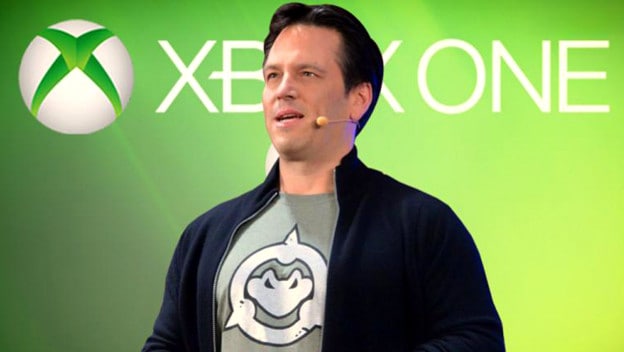In an interview with Gamespot, Xbox boss Phil Spencer has made yet another comment I can’t agree with. However, I do commend him for taking the time to read reviews of the games Microsoft has released. Of all the industries in the world, the gaming industry is by far the most open about communication between consumer and creator. That doesn’t mean, however, that there isn’t a great deal misunderstanding between the two.
Take Spencer’s comment to Gamespot for example. They inquired after his opinion on the mediocre ratings for ReCore, as it is one of the headliner Xbox exclusives. To be clear, the ratings are on the good side of average with a score of 63% on metacritic, 6/10 on GameSpot, and 6.5/10 on Polygon. I think by defining “average game” Spencer felt ReCore was a bit slighted after all the investments into it, as he states “I feel great about ReCore… I wish it reviewed higher, but I don’t necessarily look at the reviews as a reflection of the game’s importance to us”. Despite this fact, Spencer himself says in the next breath that “the game is selling well, which I like. The gamers’ response to the game has been positive, which is the most important thing.”
Yet Spencer goes right back to telling critics how wrong they are, “I thought some of the reviews were a little harsh in terms of their view on the game. But for us, inside, again I feel really proud to have the character, the story, the gameplay style, and the partnership with Armature and Inafune-san as part of our portfolio. I didn’t try to tell anybody that it was a ten. I think we knew, as with any games, that there are certain things… if we started from the beginning and we knew what we’d get, there’s a couple of things we would’ve done slightly differently.” It’s like he’s almost about to admit the faults of ReCore, but then backs off completely, “I think seven, eight, nine, like anywhere in there is fine. Three or four… I mean somebody gave Forza Horizon 3 a four.” Granted, that rating just sounds like someone doesn’t like racing games. I adore them, but I can understand that someone who doesn’t think going around in a wobbly circle three times is exciting might not like games centered around that.
Nonetheless, these ratings clearly rubbed Spencer the wrong way, as he finally comes out and says what he really thinks. “There’s certain reviews that are written more to get clicked on than they are to actually accurately reflect the quality of the game, and that kind of bums me out.” First of all, to quote Taylor Swift, “haters gonna hate.” If you create something, anything, there are some who are going to like, love, or hate it – it is the way people to have unique perspectives because of a variety of factors that influence a positive or negative opinion. And let me tell you, the negative opinions stand out a lot more simply because you can feel like they are judging you personally. But as a creator, you have to grow a thick skin, and Spencer needs to understand that. Listen to Taylor and shake it off, Spencer.

Second, and more importantly, game sites do not write bad reviews just for clicks. All of them have a code of ethics that you can read, either on their about or policy pages. If they are in some way not adhering to that code, Spencer can feel free to accuse them as he likes. But he doesn’t bring any evidence to the table to support that. Furthermore, content that is created “for clicks” is generally confined to opinion columns. Even then, most sites are fairly reasonable and prefer well-informed and researched topics than wild accusations and assumptions. Fox News has that covered, anyway.
This misunderstanding is something I hope Spencer can rectify, but who knows – maybe he’ll read this and wonder how I can be so naive. Well, when people are paid to do things, they tend to want to do it right, and being dishonest is not the way to do that. Honest and well-rounded reviews are a lot more useful to the average gamer than unethical ones; the average gamer is the one we try to inform, not the creators.
